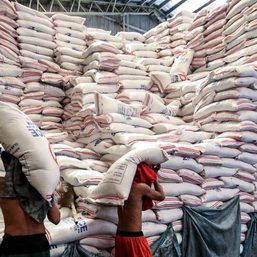SUMMARY
This is AI generated summarization, which may have errors. For context, always refer to the full article.

MANILA, Philippines – The Court of Appeals (CA) issued a cease and desist order on the commercial propagation of genetically modified crops Bt Eggplant and Golden Rice, developed by the University of the Philippines Los Banos (UPLB) and the Philippine Rice Research Institute (PhilRice), respectively.
The CA, through the decision promulgated on April 17, stopped production of the crops “until such time that the concerned respondent government agencies submit proof of safety and compliance with all legal requirements.”
Among UPLB and PhilRice, the respondents include the Department of Agriculture, Department of Environment and Natural Resources, Department of Health, and Bureau of Plant Industry.
Wilhelmina Pelegrina, campaigner of Greenpeace Southeast Asia, said the decision is a “monumental win for Filipino farmers and Filipino people who have for decades stood up against genetically modified crops.”
“In doing so, the CA has upheld the constitutional rights of Filipinos and the government’s duty to serve the interests of the people rather than that of agrochemical companies,” said Pelegrina.
Pelegrina said genetically modified crops in the Philippines have been approved despite “lack of robust data on safety assessments submitted by proponents.”
In the UPLB’s College of Agriculture and Food Science website, Bt Eggplants are said to contain a natural protein from the soil bacterium Bacillus thuringiensis (Bt), making them resistant to insect pest eggplant fruit and shoot borer (EFSB).
“At present, no existing commercial eggplant varieties with high resistance to EFSB are available in the Philippines, and EFSB resistance is difficult to develop using conventional plant breeding,” the project description on the website read.
Meanwhile, PhilRice said Golden Rice was developed using a gene from maize and could provide at least 30% of the average requirement for vitamin A.
According to PhilRice, Golden Rice or Malusog rice had been assessed as safe by the Food Standards Australia-New Zealand, Health Canada, the United States Food and Drug Administration, DA-BPI, and through the Joint Department Circular (JDC) No. 1 series of 2016.
The CA decision ordered concerned government agencies to assess the products under JDC No. 1, series of 2021, which is an enhanced iteration of JDC 2016. These circulars outline the rules and regulations governing the development and release of genetically modified crops in the Philippines.
Genetically modified crops are agricultural plants whose DNA are modified through genetic engineering methods. They are designed to increase crop yields and resistance to pests, among others.
On October 17, 2022, several individuals and environmental, farmers groups including Magsasaka at Siyentipiko para sa Pag-unlad Agrikultura (MASIPAG), Greenpeace, and Kilusang Magbubukid ng Pilipinas (KMP) petitioned for a writ of kalikasan and continuing mandamus to stop the commercial release of said products.
The Supreme Court granted the writ back in April 2023. The writ of kalikasan is a legal remedy used to invoke someone’s right to a balanced and healthful ecology.
– Rappler.com
Add a comment
How does this make you feel?
![[OPINION] Golden Rice promise in peril](https://www.rappler.com/tachyon/2021/05/TL-golden-rice-1280.jpg?fit=449%2C449)










There are no comments yet. Add your comment to start the conversation.